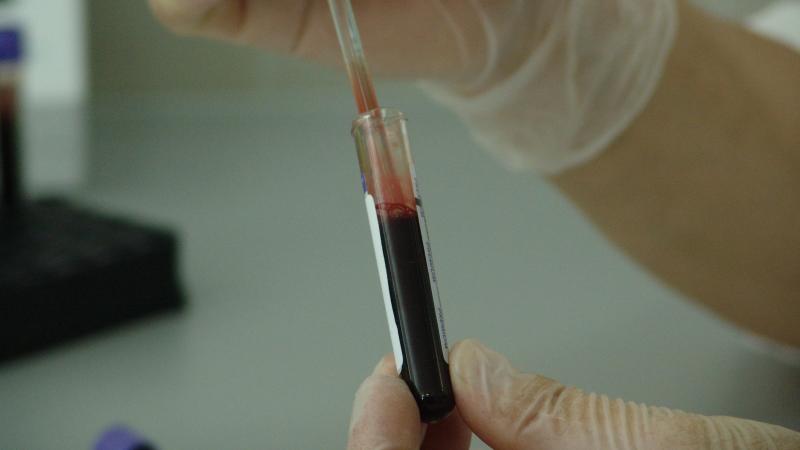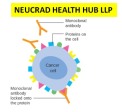Demystifying Cancer, One Gene at a Time

By Nagashree Avabhrath Distributed by neucrad health, March 13, 2019
Cancer is a group of diseases that involve abnormal cell growth and can spread to other parts of the body. But, did you know that all the cells inside a cancerous tissue are not the same? They vary in their shape, size and function, posing a challenge to be treated effectively. Prostate cancer is one such type that shows variations in the cells. In some cases, individuals suffering from this condition have an increase in the level of a protein called Serine Peptidase Inhibitor, Kazal type-1, or SPINK1. Often, doctors check for the levels of this protein in the blood or urine to diagnose prostate cancer. However, what causes this increase at the molecular level was not known until now.
In a recent study, researchers at the Indian Institute of Technology Kanpur (IIT Kanpur) have established the role of specific microRNAs in regulating the levels of SPINK1. MicroRNAs or miRNAs are small RNA molecules that target certain messenger RNAs to prevent their conversion into proteins. They play an essential role in protein synthesis and gene regulation that can sometimes cause a wide variety of diseases. In their study, published in the journal Clinical Cancer Research, the researchers show that increasing the levels of these microRNAs reduce the progression of prostate cancer. The research was funded by Wellcome Trust/DBT India Alliance.
The researchers experimentally introduced ‘anti-microRNA’ molecules into cells that resulted in the significant reduction of microRNAs. They then measured the levels of SPINK1 and found it high, proving that the microRNAs indeed regulated SPINK1.
Unlike healthy cells, cancer cells can multiply without control, invade other tissues and grow on top of one another. Understanding the mechanism behind these properties, called oncogenic properties, of the cancer cells can help to develop effective cancer therapy. The researchers of the current study ascertained if an increase in the microRNAs affected the oncogenic properties by examining the proliferation and invasion of the cancer cells. They found a marked reduction in the oncogenic properties of these cells, indicating the effect of microRNAs.
The researchers also explored how these microRNAs inhibit the action of cancer stem cells. Akin to healthy stem cells, cancer stem cells can develop into any cell in a tumour. When present in a tumour, they can pump out chemotherapeutic drugs by producing certain proteins, thus preventing the action of the drugs. The study found that microRNAs inhibited the expression of these proteins, thereby significantly decreasing the number of cells capable of pumping out anti-cancer drugs.
The study found that cancer patients with increased levels of SPINK1, also called SPINK1 positive cancer, had increased levels of an enzyme called EZH2. This enzyme adds a methyl group to the histone proteins present in the DNA and is also responsible for healthy embryonic development. The researchers found that the enzyme reduced the number of microRNAs by adding methyl groups to the genes coding for these microRNAs, which otherwise regulate the levels of SPINK1, thus leading to its increase. However, restoring these microRNAs using specific drugs could nullify the cancer-causing ability of SPINK1, the study found.
Talking about the challenges faced during this study, Prof Bushra Ateeq of IIT Kanpur, who led the research, says, “The biggest challenge was understanding how microRNA silencing was controlled in cells exhibiting SPINK1 overexpression”. Another challenge was the lack of sufficient patients’ samples to conduct their experiments as only one in ten patients have SPINK1 positive cancer. “Due to the lack of accessibility to patient samples, and reduced frequency of SPINK1 cases, it was tough collecting and screening patient samples”, she adds.
Currently, there is no effective treatment for SPINK1 positive cancers. Based on the findings of the current study, the researchers propose a therapy, which increases the levels of microRNAs to regulate SPINK1, to help cancer patients. As a next step, they are studying the role of other RNA molecules that control the production of SPINK1. “We are also looking at other genetic aberrations that might play an important oncogenic role in driving SPINK1-positive subtype of prostate cancer”, explains Prof Ateeq.
The findings of the study provide insights into treating other types of cancers too. “The major findings of this study will not only advance the prostate cancer field but will also be valuable for treatment and disease management of other malignancies like colorectal, breast and pancreatic cancers that show increased expression of SPINK1,” concludes Prof Ateeq.
Source: Epigenetic silencing of miRNA-338-5p and miRNA-421 drives SPINK1-positive prostate cancer
News and image credit: Research Matters








